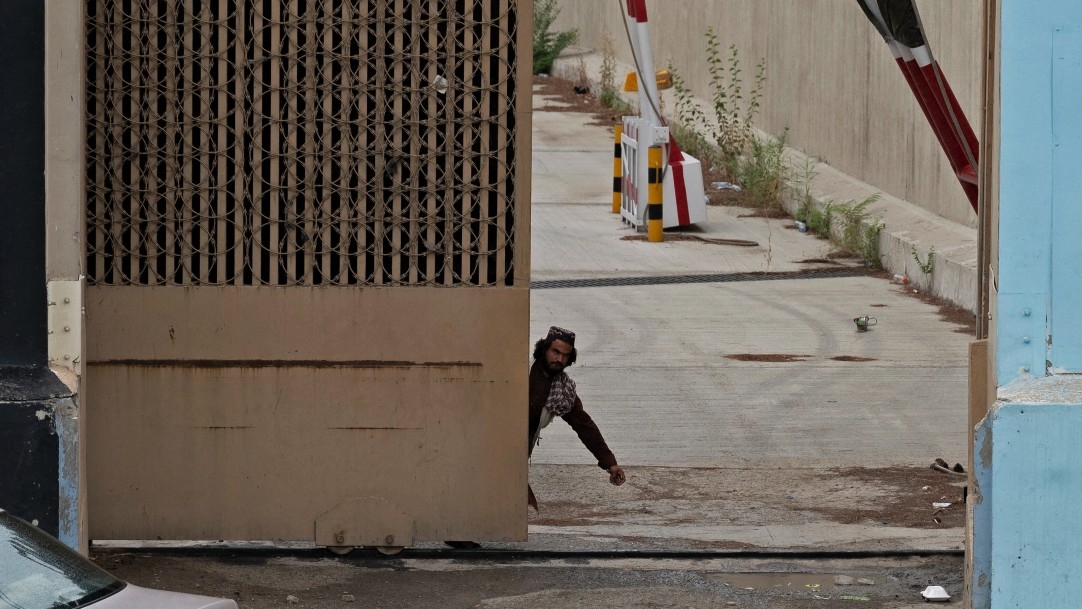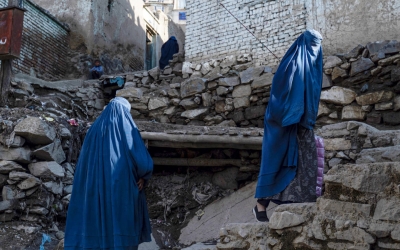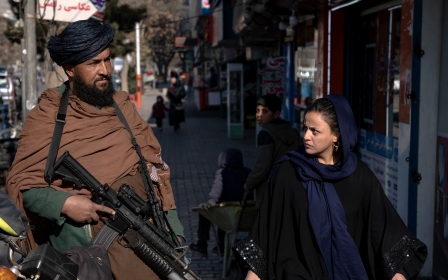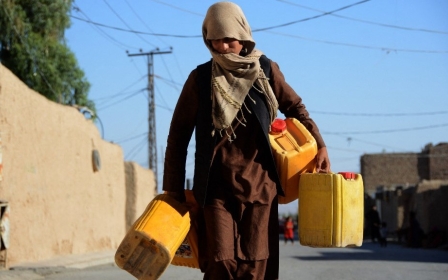US needs 'official presence' on ground in Afghanistan, says ex-CIA official

The United States should have an official presence in Afghanistan and engage with Taliban leadership, a former CIA official said on Tuesday.
In a panel discussing US policy on Afghanistan, hosted by the Washington-based think tank, the Middle East Institute, Douglas London said the US needs to be in conversation with the Taliban leadership on issues like counterterrorism and fighting the Islamic State (IS) group.
"As an intelligence professional or former intelligence professional, I would like to see the United States have an official presence on the ground, not just in Kabul, but particularly in Kandahar, where leadership decisions are being made," London said during the MEI panel discussion.
"Washington speaks at the White House [about] over-the-horizon. Over-the-horizon gets you something, it's largely remote in terms of intelligence. But it's not the same as having a presence on the ground, an official presence on the ground."
Over-the-horizon capabilities refer to the use of drone strikes and aerial surveillance, and have been touted by the Biden administration as a key pillar of US counterintelligence since the US's withdrawal from Afghanistan.
New MEE newsletter: Jerusalem Dispatch
Sign up to get the latest insights and analysis on Israel-Palestine, alongside Turkey Unpacked and other MEE newsletters
London, who formerly served as the CIA’s counterterrorism chief for South and Southwest Asia, said that having a physical presence in Afghanistan may only be possible by recognising the Taliban, which he said "does not convoke agreement with what they're doing".
"The Taliban is not homogeneous ... they have different interests, and can be influenced and incentivised. But in order to have the currency to accomplish that, you also need engagement," he said.
The US withdrew from Afghanistan in August 2021, ending a two-decade-long military presence in the country. As they worked to finalise the withdrawal, the then-Afghan government collapsed amidst a sweeping takeover of most of the country by Taliban forces.
Since withdrawing from the country and the Taliban declaring victory and taking control of Kabul, Washington has had limited engagement with the Taliban.
The Biden administration froze $7bn in funds belonging to the Afghan central bank and announced in September 2022 that half of these funds would be distributed between the families of the victims of the 9/11 attacks, while the other half would be placed in an "Afghan Fund" and would be run by Swiss government officials and Afghan economic experts.
Afghanistan, meanwhile, is in desperate need of cash.
The country's gross domestic product plummeted 20 percent following the Taliban takeover after the US withdrawal.
Foreign aid, which accounted for 95 percent of the government's budget under the previous administration, has dried up. It is estimated that 95 percent of the population does not have enough to eat.
Middle East Eye delivers independent and unrivalled coverage and analysis of the Middle East, North Africa and beyond. To learn more about republishing this content and the associated fees, please fill out this form. More about MEE can be found here.





